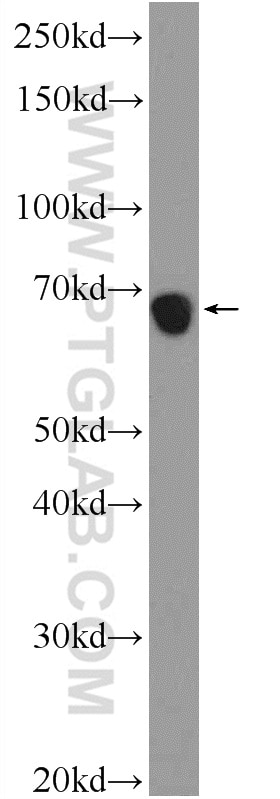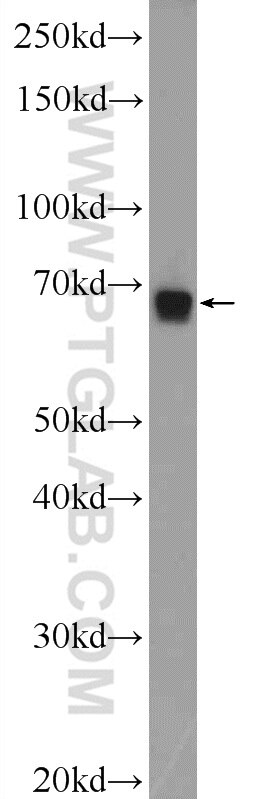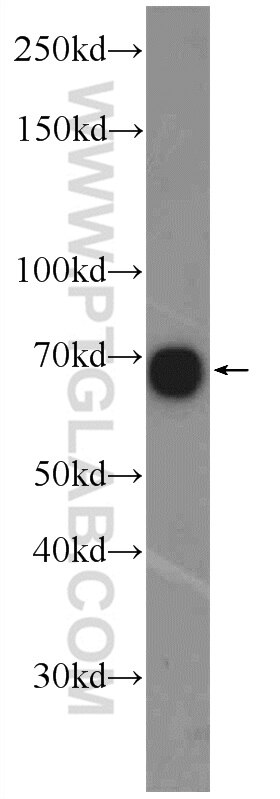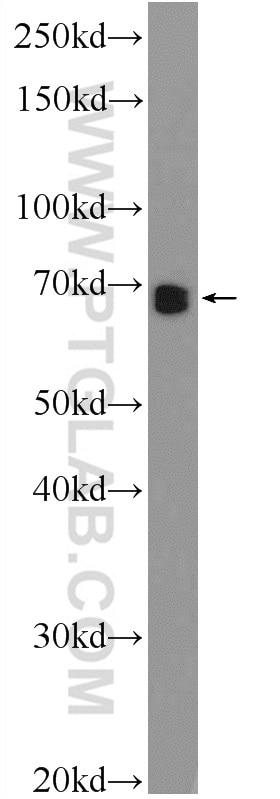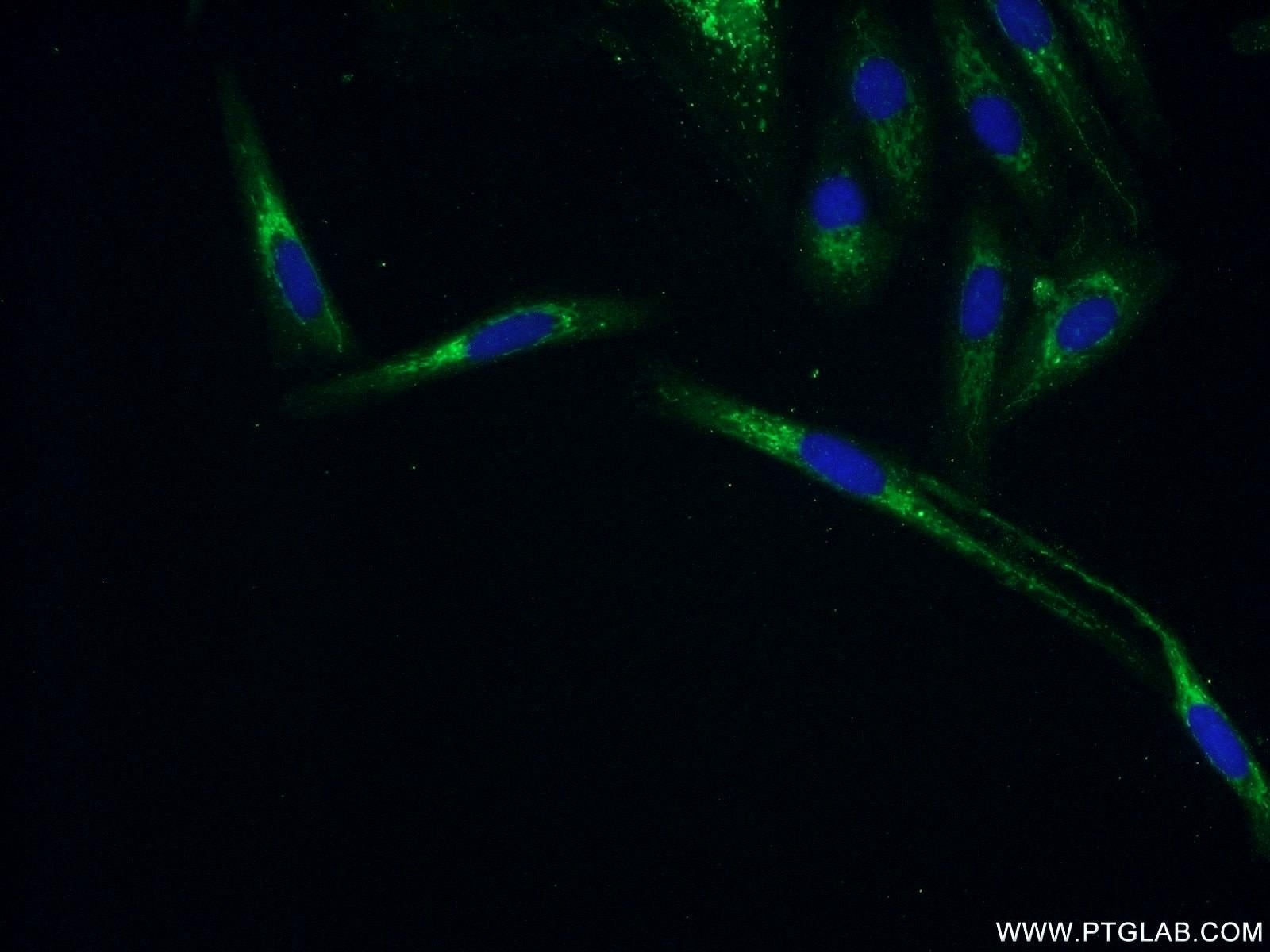Validation Data Gallery
Tested Applications
| Positive WB detected in | mouse testis tissue, HepG2 cells, mouse skeletal muscle tissue, SKOV-3 cells |
| Positive IF/ICC detected in | SKOV-3 cells |
Recommended dilution
| Application | Dilution |
|---|---|
| Western Blot (WB) | WB : 1:500-1:1000 |
| Immunofluorescence (IF)/ICC | IF/ICC : 1:20-1:200 |
| It is recommended that this reagent should be titrated in each testing system to obtain optimal results. | |
| Sample-dependent, Check data in validation data gallery. | |
Published Applications
| KD/KO | See 2 publications below |
| WB | See 2 publications below |
Product Information
25601-1-AP targets ZNF251 in WB, IF/ICC, ELISA applications and shows reactivity with human, mouse samples.
| Tested Reactivity | human, mouse |
| Cited Reactivity | human |
| Host / Isotype | Rabbit / IgG |
| Class | Polyclonal |
| Type | Antibody |
| Immunogen | ZNF251 fusion protein Ag22347 相同性解析による交差性が予測される生物種 |
| Full Name | zinc finger protein 251 |
| Calculated molecular weight | 671 aa, 76 kDa |
| Observed molecular weight | 70-76 kDa |
| GenBank accession number | BC112137 |
| Gene Symbol | ZNF251 |
| Gene ID (NCBI) | 90987 |
| RRID | AB_2880154 |
| Conjugate | Unconjugated |
| Form | Liquid |
| Purification Method | Antigen affinity purification |
| UNIPROT ID | Q9BRH9 |
| Storage Buffer | PBS with 0.02% sodium azide and 50% glycerol , pH 7.3 |
| Storage Conditions | Store at -20°C. Stable for one year after shipment. Aliquoting is unnecessary for -20oC storage. |
Protocols
| Product Specific Protocols | |
|---|---|
| WB protocol for ZNF251 antibody 25601-1-AP | Download protocol |
| IF protocol for ZNF251 antibody 25601-1-AP | Download protocol |
| Standard Protocols | |
|---|---|
| Click here to view our Standard Protocols |
Publications
| Species | Application | Title |
|---|---|---|
Res Sq Haploinsufficiency of ZNF251 causes DNA-PKcs-dependent resistance to PARP inhibitors in BRCA1-mutated cancer cells
| ||
Cancer Lett ZNF251 haploinsufficiency confers PARP inhibitors resistance in BRCA1-mutated cancer cells through activation of homologous recombination
|
